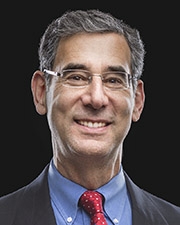Charting a course for the future of EdTech: The inaugural Catapult cohort
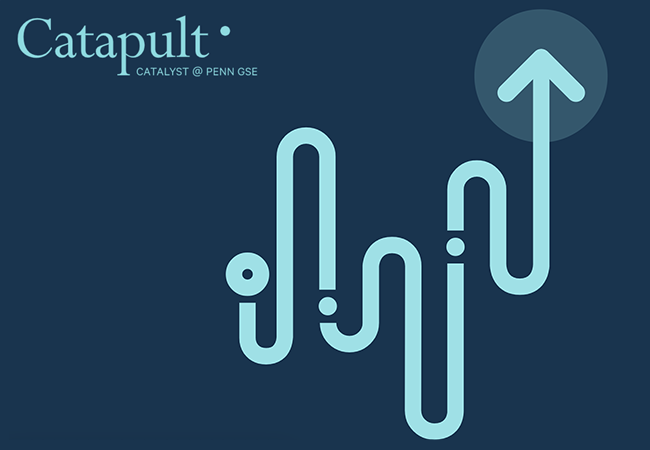
With an eye on the future of education technology, global education innovation center Catalyst @ Penn GSE launched Catapult, a virtual accelerator designed to transform education entrepreneurship, late last year. At launch, Catapult announced its intent to form an inaugural cohort of three promising ventures to take to the next level.
Those three inaugural Catapult Cohort ventures have been announced: Readlee, eClose Institute, and Avela.
Built from the ground up to support education entrepreneurs at all stages of development and help them make a global impact on education, Catapult’s network will provide these three ventures with an array of tools and resources including applied learning, personalized coaching, translation of knowledge to practice, and community support.
The accelerator is overseen by Penn GSE Director of Innovative Programs and Entrepreneur-in-Residence John Gamba.
“We at Catalyst have a mission to advance innovation, impact, and equity in worldwide education,” says Gamba. “And we do that through a continuum of programming. When COVID hit, a lot of our programming was already online. And when we reached out to our stakeholders and attendees, they said, ‘Don’t slow down. We really need support.’’ And right then, Catapult was born.”
According to Gamba, Catapult currently provides members with approximately 150 hours of searchable, personalized content through a growing online content hub. Cohort members will also receive personalized advice from a matched advisor who will help these ventures on what Catapult has defined as its “five lanes of support”: leadership, product development, efficacy, tech, and fundraising. Surveys and assessments will help Catapult match ventures to the resources they need in each area.
“It’s our job to outline to them those five lanes, and then to determine where we prioritize our support,” says Gamba. “After that, and with this inaugural cohort, we’ll co-construct the milestones and activities within those lanes to make the most of their accelerator experience.”
Catalyst @ Penn GSE Executive Director and Senior Fellow Michael Golden added, “In the four years since we launched Catalyst @ Penn GSE, we have expanded the support we offer education entrepreneurs. With Catapult, we are thrilled to bring together researchers and faculty from the nation's foremost school of education, practitioners from colleges, schools and classrooms across the country, investors, and others to push these entrepreneurs even further as they strive to support equitable outcomes for all learners.”
Meet the Cohort: Readlee
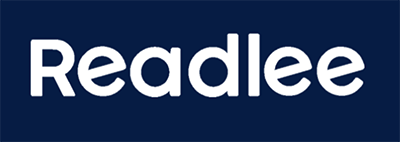
A teacher by training, Readlee co-founder and CEO Drew Madson helped found a public charter school in Colorado, where he taught for seven years. The school was a remarkable success, with 100% of its students — 70% of which were at or below the poverty line — being accepted to four-year colleges.
“But we didn’t solve this core problem, and I noticed it happening every day,” says Madson. “I taught anywhere between 100 and 150 students, and I never knew the quality or quantity of their reading practice. And I knew the majority of those students needed individualized support.”
Madson traces the origin of Readlee back to one particular student, Oscar, who he hadn’t heard read all year. When Oscar’s mother began inquiring as to his reading progress, Madson suggested Oscar record himself reading aloud on his phone, then send his mother and Madson the voice memo.
It proved wildly effective. Oscar practiced more often, gaining confidence along the way. Madson realized the potential of a platform like this for all students. He applied and was accepted to the Harvard Graduate School of Education’s Technology, Innovation, and Education Master’s degree. He was one of 13 students selected as a Harvard Urban Scholar — which is the program in which he met his co-founder, Steve Askar.
Together, the two devised an AI-driven platform that listens to students read aloud and provides real-time feedback. Through Readlee, teachers — who can access the platform for free — are given instant insight into which students have completed the reading, as well as data on each student’s reading fluency, vocabulary acquisition, and practice time.
In only two years, Readlee has gone from a modest 15-school soft launch to being in more than 2,000 schools across 47 states and providing vital reading instruction to more than 65,000 students.
“What’s cool is it speaks to solving this core problem that exists in elementary school all the way up through high school,” Madson says. “Administrators and teachers want reliable data on reading practice in lots of different contexts, and Readlee solves that problem.”
Interested in joining what he described as Penn’s “extraordinary hub of intellectuals and leading researchers,” in early 2020 Madson reached out to Gamba — who suggested Madson apply to the Milken - Penn GSE Education Business Plan Competition (EBPC).
Readlee went on to win the 2021 Michael & Lori Milken Family Foundation Grand Prize.
Madson described the win as a testament to the faith that administrators and teachers have put into Readlee.
“They’ve been part of this mission from the start,” says Madson. “We’ve always said we were going to build this in collaboration with them.”
On top of being an inspiration for the Readlee team to keep their foot on the gas, winning the EBPC opened up a number of funding opportunities for Readlee, particularly with investors who might not be as familiar with the EdTech market. It’s considered a seal of approval — a demonstration of Readlee’s legitimacy in the edtech industry.
The response, according to Madson, has been overwhelmingly positive.
“I’ve heard this response multiple times from English teachers and principals, that they’ve waited 20 years for this product to exist,” he says. “That feels really, really good. And then from a student level, we hear variations of, ‘I can see myself getting better every time, I feel more confident every time.’”
In being accepted into the inaugural Catapult Cohort, Madson hopes to be able to incorporate even more of the latest research and data into Readlee to improve outcomes across the board through evidence-based practice. He also hopes Readlee will be able to better serve administrators by simplifying the bureaucratic sales process.
Longer-term, Madson says the goal for the next five years is to be in 90% of American classrooms — and not just for reading. By fostering student discussion about the content with which they’re interacting, Madson says Readlee could become a useful tool for nearly any discipline. He also would like to expand Readlee’s features to give parents and community members a wider array of tools and data. Then, of course, there’s international expansion.
“It kind of boggles my mind,” Madson says. “Every day I look at the new teacher signups, and it’s more teachers than the entirety of the school I taught at. It’s very humbling.”
Meet the Cohort: eClose Institute
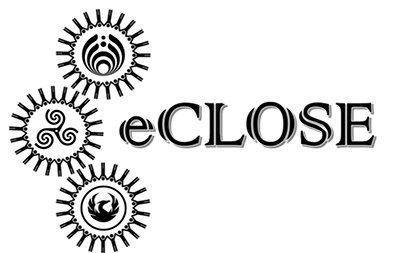
Co-founded by Executive Director and Chief Scientific Officer Alana O’Reilly, PhD, and Executive Director and Chief Learning Officer Dara Ruiz-Whalen, the eClose Institute brings professional research training to students wherever they are, encouraging diversity in the biomedical field by providing students from every background with the skills, confidence, and network to get them on the road to biomedical careers in STEM. The name eClose serves a dual purpose, both as an acronym — Empower the Community Lens on Science through Education — and as a scientific term referring to the precise moment an insect emerges from its pupa as an adult.
The program places particular focus on students who come from underserved communities that regularly experience healthcare inequity and inequality and gives those students an opportunity to let their experiences influence the focus of their research. Currently, fewer than one percent of scientific research faculty are from these underrepresented backgrounds.
“Each and every one of these kids has a life experience that makes them understand health conditions and health challenges in ways these professional scientists don’t,” says Dr. O’Reilly. “We want for them to bring their own life into science and really start to make differences, particularly in communities that experience health disparities.”
The program gives students everywhere — from inner city environments to deeply rural ones — the opportunity to access research training and experience it as a potential career. Normally, these programs are inaccessible to these students because of cost or transportation concerns, among other factors.
Dr. O’Reilly traces the origins of the eClose Institute to Harvard Medical School, where she worked with a student trainee. The student, a junior at a Boston magnet school considered one of the best in the city, didn’t know what a gram was. Dr. O’Reilly recalls spending the summer working with this student to get her educated in the basics of science and science research. That student went on to earn full scholarships to college and medical school, start a program for Latina women with HIV, and serve as one of five attending physicians of color at Children’s Hospital of Philadelphia.
The early success of her approach prompted scientist-at-heart Dr. O’Reilly to reach out to science-educator-at-heart Ruiz-Whalen. Together, they started an academic program at Temple University’s Fox Chase Cancer Center. When the program began to grow too large for the facilities housing it — they were up to 1,400 student participants by 2019 — Dr. O’Reilly and Ruiz-Whalen started to attend Catalyst workshops. After a few productive conversations with Gamba, Dr. O’Reilly Ruiz-Whalen incorporated the eClose Institute in 2019, just ahead of that year’s EBPC — where they were awarded both the American Public University System Prize of $25,000 and the NEXT/Shulman Rogers Audience Choice Prize of $15,000.
“I don’t know if the growth of the program would have happened as quickly as it did without Catalyst,” says Ruiz-Whalen.
And that growth has been substantial: Dr. O’Reilly noted that in eClose’s first year, it had 52 participants. This year, they are on track for more than 3,000.
As they get ready to participate in the Catapult cohort, Dr. O’Reilly and Ruiz-Whalen are eager to contribute their unique directorial approach.
“Dara is an education researcher,” says Dr. O’Reilly. “I’m an experimental researcher. And we’ve worked together to weave these two generally separate fields into one new, innovative thing. I think that experience can be super helpful to the other members of the cohort, and we look forward to learning so much more from them as well.”
Meet the Cohort: Avela
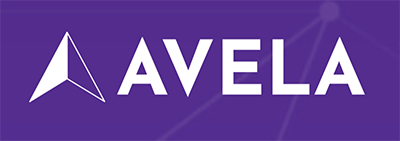
Each of the ventures in the Catapult cohort comes to the issue of equity in education in their own way. For the founders of Avela, it came down to a key question: How can the complex algorithms used to allocate scarce resources in areas like healthcare and public services be used in education? And how could it be packaged in such a way that school districts — many of which are already stretched thin — are able to use it?
“There are two ways school enrollment is done now,” says Avela Education co-founder and CEO Greg Bybee. “The first is by zip code: where you live determines what school you go to. That works fine in homogenous areas where all the schools are great and everybody’s evenly distributed, but that’s rare.”
The other system? A simple lottery. A child’s future, embodied by a numbered ping-pong ball rolling around in a cage.
These are rudimentary solutions to a wildly difficult problem. Thankfully, Bybee says, there’s already an entire field of economics dedicated to solving issues of resource allocation — “market design.” With a founding team that includes Nobel Prize-winning economist Joshua Angrist and Clark Medalist Parag Pathak, Avela is developing a suite of software that puts this established bank of knowledge to work on the process of school enrollment — from finding schools, to applications, to the selection process, all the way through registration.
Avela builds on Angrist and Pathak’s more than two decades of experience working directly with school districts to design new approaches and build systems for K-12 enrollment. Avela’s goal is to scale that work to all of the 14,000 districts across the country — and eventually, around the globe.
It's a unified system of four modules: Explore, Apply, Match, and Enroll. Explore, which is already available, provides parents with an easy-to-browse school-finding platform through which they can make their decision on which schools to apply for; Apply will guide parents through the application process and give districts a set of application evaluation tools; Match will provide an equitable and algorithm-based tool through which the selection process is driven; and Enroll will help parents and districts finalize the enrollment process quickly and easily.
The software’s rollout is still in the early stages, but the Avela team has been working with cities across the country, including New Orleans, Newark, and Philadelphia. The progress thus far has been exciting — and they don’t intend to slow down.
“We’ve been working with dozens of school districts around the country to build up the software,” says Bybee. “In doing so, we’ve discovered a lot of the other challenges they face. Right now, we’re focused on the enrollment side of things, but we see opportunities to help districts, charter organizations, private schools, and universities with data-driven decisions including admissions, master scheduling, bus routing, portfolio planning, grading equity, and removing bias from behavioral interventions.”
For Bybee, who had worked in education for a decade prior to founding Avela, the promise of a more democratized and equitable school selection process harkens back to his previous work bringing college courses into the online space.
Through involvement with the Catapult cohort, Bybee says he hopes to not only contribute what he and his team have learned since they embarked on this mission only a few years ago, but to also receive mentorship and advice from the extensive University of Pennsylvania network of faculty and researchers.
How Will Catapult Define Success?
To Catalyst, there are three major measures of success for the inaugural Catapult Cohort. The first would be that each venture is able to embrace a sense of community and the co-constructive approach with their fellow cohort members and the venture accelerator environment. The second — reflective of Catapult’s evaluative model, which probes for sustainability, scalability, and commitment to research-to-practice — is a dedication to intentionality and informed practice. The third, which harkens back to the mission of Catalyst and Penn GSE as a whole, is that the ventures are operating through the lens of equity — working to ensure better, more accessible education is available for every learner, regardless of background.
Reflecting on 20 years of work in education technology and venture development, Gamba notes he is looking forward to seeing what the cohort can do with the tools Catapult provides. He considers it a way of paying it forward, so to speak, after a career of learning from the insight and guidance of advisors and mentors along the way.
“We get really excited about the purpose-driven nature of these entrepreneurs,” says Gamba. “They’re interested and focused on doing good and doing well.”

